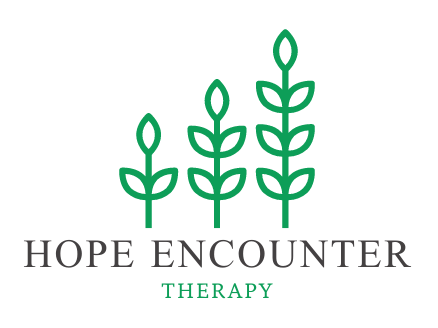Trauma has a profound impact on relationships. Whether it stems from childhood experiences, previous relationships, or shared traumatic events within the partnership, unresolved trauma can shape how partners communicate, trust, and connect.
One powerful therapeutic approach that is gaining traction for couples dealing with trauma is EMDR (Eye Movement Desensitization and Reprocessing). While EMDR is often used to address individual trauma, its principles and techniques can be incredibly beneficial when applied in the context of couples therapy.
In this post, we will explore how EMDR therapy can help couples work through trauma that affects their relationship. We’ll discuss the types of trauma that often impact couples, how EMDR works, and the specific ways it can enhance relational healing and connection.

Understanding Trauma in Relationships
Trauma doesn’t just affect individuals — it affects relationships too. When one or both partners carry unprocessed trauma, it can show up in the relationship as:
- Emotional reactivity: Feeling triggered by small disagreements.
- Attachment issues: Fear of abandonment or difficulty trusting.
- Communication breakdowns: Struggling to express needs without blame.
- Intimacy challenges: Emotional or physical withdrawal.
- Conflict cycles: Repeating the same arguments without resolution.
Trauma that affects relationships often comes from three primary sources:
- Childhood Trauma: Early experiences of neglect, abuse, or instability can shape how individuals attach and connect as adults.
- Previous Relationship Trauma: Betrayals, infidelity, or emotional abuse from past partners can influence current dynamics.
- Shared Trauma as a Couple: Experiencing a traumatic event together — like an accident, loss, or betrayal within the relationship — can create lasting relational wounds.
Couples often find themselves stuck in negative patterns because their trauma responses are activated during interactions. This is where EMDR therapy can make a significant difference.
What Is EMDR and How Does It Work?
EMDR (Eye Movement Desensitization and Reprocessing) is a psychotherapeutic approach originally developed to treat PTSD. It helps individuals process traumatic memories by using bilateral stimulation (like eye movements or tapping) while focusing on distressing thoughts, memories, or emotions.
The 8-Phase Model of EMDR:
- History and Treatment Planning: Identifying key traumatic events and symptoms.
- Preparation: Teaching coping skills and ensuring emotional stability.
- Assessment: Identifying negative beliefs and setting therapeutic goals.
- Desensitization: Processing memories while engaging in bilateral stimulation.
- Installation: Strengthening positive beliefs linked to the memory.
- Body Scan: Identifying residual physical tension related to the memory.
- Closure: Ensuring the client feels stable before ending the session.
- Re-evaluation: Reviewing progress and addressing lingering issues.
Why EMDR Works for Relationship Trauma
EMDR targets trauma-related memories stored in the brain’s limbic system, helping to desensitize emotional triggers and reprocess negative beliefs. This means that memories that once felt overwhelming become more manageable, and triggers lose their intensity.
While EMDR is often conducted individually, it can be highly beneficial when integrated into couples therapy, helping partners understand each other’s trauma responses and fostering empathy.

How EMDR Can Help Couples Heal
EMDR can address trauma in relationships through both individual and joint sessions. The approach varies based on the nature of the trauma and the couple’s unique dynamics.
-
Individual Sessions for Trauma Impacting the Relationship
Sometimes, one partner’s unresolved trauma significantly impacts the relationship. In these cases, individual EMDR sessions can help:
- Reduce emotional reactivity: Lessening the intensity of triggered responses.
- Process past trauma: Healing childhood wounds that influence attachment styles.
- Build self-regulation skills: Developing healthier ways to cope with triggers.
Once the partner have processed their trauma, they can more effectively engage in relationship work without being overwhelmed by past pain.
-
Healing from Previous Relationship Trauma
If trauma from past relationships is affecting the current partnership, EMDR can help individuals process memories of:
- Infidelity and betrayal
- Emotional or physical abuse
- Breakups that left unresolved grief
When partners understand how past trauma shapes their present fears and reactions, they can better support each other and work collaboratively to build healthier dynamics.
-
Addressing Shared Trauma as a Couple
Couples who have experienced trauma together — like a loss, accident, or infidelity — can benefit from a combined approach:
- Joint sessions to explore the shared trauma and how it affects the relationship.
- Individual sessions to address personal aspects of the trauma.
- Reprocessing memories that are linked to each partner’s feelings of guilt, blame, or fear.
EMDR can help couples reprocess the event together, fostering joint resilience rather than allowing the trauma to create emotional distance.
The Benefits of EMDR for Couples
EMDR offers couples several important benefits, including:
- Enhanced Emotional Regulation: Reducing fight-or-flight responses during conflicts.
- Improved Communication: Helping partners articulate their emotions without being overwhelmed by past pain.
- Increased Empathy: Understanding the root of each other’s triggers promotes compassion.
- Strengthened Attachment: Processing past wounds allows for more secure bonding.
- Conflict Resolution: Reducing automatic reactions makes problem-solving more effective.
Challenges and Considerations
- Finding a Trained Therapist:
Not all EMDR therapists specialize in couples work, so finding a clinician who understands both trauma and relational dynamics is essential. All the clinicians at Hope Encounter Therapy are trained to work with EMDR for individuals and couples.
- Balancing Individual and Joint Sessions:
While EMDR often starts as individual therapy, integrating it into couples sessions requires careful planning. Some therapists use conjoint EMDR techniques or alternate between individual and joint work.
- Readiness for Trauma Processing:
Not all couples are immediately ready for EMDR. Issues like ongoing abuse, substance use, or severe mental illness may need to be addressed first.
A Realistic Perspective on Healing
It’s important for couples to understand that EMDR is not a quick fix. Healing trauma requires commitment, openness, and the willingness to explore deep-seated emotional wounds. While EMDR can significantly reduce the intensity of triggers and change negative thought patterns, ongoing relationship work is necessary to build new communication habits and emotional safety.
Moving Forward Together
Trauma doesn’t have to define your relationship. Through EMDR, couples can learn to understand each other’s pain, reduce emotional reactivity, and build a more secure connection. By addressing both individual and shared wounds, partners can move from survival mode to thriving together.
If trauma has been impacting your relationship, consider reaching out to a qualified EMDR therapist who can guide you through the process. Healing is possible — and it can transform not only how you relate to each other but also how you understand yourselves.
Contact Hope Encounter Therapy to learn how EMDR can support your relationship journey.
📧 Email: emdr@HopeEncounterTherapy.com
📞 Phone: 919-335-3420

Heal Your Relationship with EMDR Therapy in Raleigh, NC
If past wounds are affecting your relationship, EMDR therapy for couples can help you and your partner process trauma and rebuild trust. At Hope Encounter Therapy, we provide a safe and supportive space to work through painful experiences together. Start your journey toward healing with EMDR therapy in Raleigh, NC—schedule a consultation today. Follow these three simple steps to get started:
- Contact us for a free consultation.
- Meet with one of our skilled EMDR therapists.
- Begin to heal your relationship!
Additional Services Offered at Hope Encounter Therapy
At Hope Encounter Therapy, we are committed to helping individuals and couples navigate their healing journeys with compassionate, personalized care. EMDR therapy plays a vital role in trauma recovery, but we recognize that every healing process is unique. That’s why we also offer Somatic Experiencing, Cognitive Processing Therapy (CPT), and Narrative Therapy, creating a customized approach to meet your specific needs. Our individual therapy services are designed to support trauma recovery, while our blog provides valuable insights, practical tools, and continuous mental health guidance.


